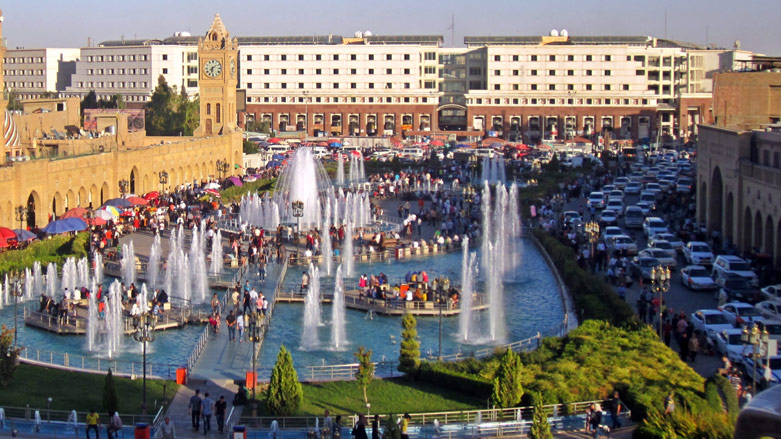Tourism spokesperson highlights eight key benefits of an independent Kurdistan

ERBIL, Kurdistan Region (Kurdistan 24) – The spokesperson for the Kurdistan Region’s Board of Tourism, Nadir Rosti, stated that the Region’s tourism sector would continue to suffer should Kurdistan remain a part of Iraq.
The Kurdistan Regional Government (KRG) plans to hold a referendum on independence for the Kurdistan Region on Sep. 25, 2017, to decide whether to stay part of Iraq or secede and establish a newly-independent country.
On his official Facebook account, Rosti explained that the tourism sector would greatly develop under an independent state of Kurdistan and laid out several reasons.
“Once an independent state of Kurdistan is established, tourism would be one of the main sources of revenue. As long as we stay part of Iraq, the Kurdistan Region’s tourism sector will continue to suffer and miss out on many opportunities,” the spokesperson stated.
He mentioned that Kurdistan Region cannot be a member of the United Nations World Tourism Organization (UNWTO), and cannot benefit from the organization.
Rosti noted that the current status quo prevents the Region to own airline companies, stating the Kurdistan Region’s aviation is under the authority of Baghdad, and that most of the Region’s airport revenues go to the federal government of Iraq.
The spokesperson explained that now, the Kurdistan Regional Government (KRG) cannot issue tourism visas and benefit from the revenue.
He also noted that Iraq's unfavorable image worldwide has by and large negatively affected the tourism sector in the Kurdistan Region.
“Iraq is known as an unstable and war-torn area which has pushed many tourists to pass up on visiting the Kurdistan Region once they realize the Region is part of Iraq,” Rosti emphasized.
Regarding foreign tourism companies, he said they do not trust the current state of Iraq, and thus do not invest in the country. In contrast, he believes an independent Kurdistan would attract many foreign businesses to invest in Kurdistan’s tourism sector.
The Kurdish official went further on to state that tourist destinations in the Kurdistan Region are officially part of Iraq and that the KRG is often unable to make the necessary decision to boost the sector as their authority is limited. This issue, he argues, would be resolved under an independent state of Kurdistan.
“In an independent Kurdistan, we would be able to participate in international tourism conferences and activities under the name of Kurdistan. This would allow us to introduce Kurdistan's tourism destinations in a much more effective manner, as well as provide regular and safe flights,” he concluded.
The semi-autonomous Kurdistan Region is rich in natural resources, namely oil and gas. Over 90 percent of the KRG’s revenue comes from oil.
In the past few years, the KRG has looked to boosting the agriculture and tourism sectors in the Kurdistan Region as a means to diversify the Region’s sources of revenue.
Editing by G.H. Renaud
